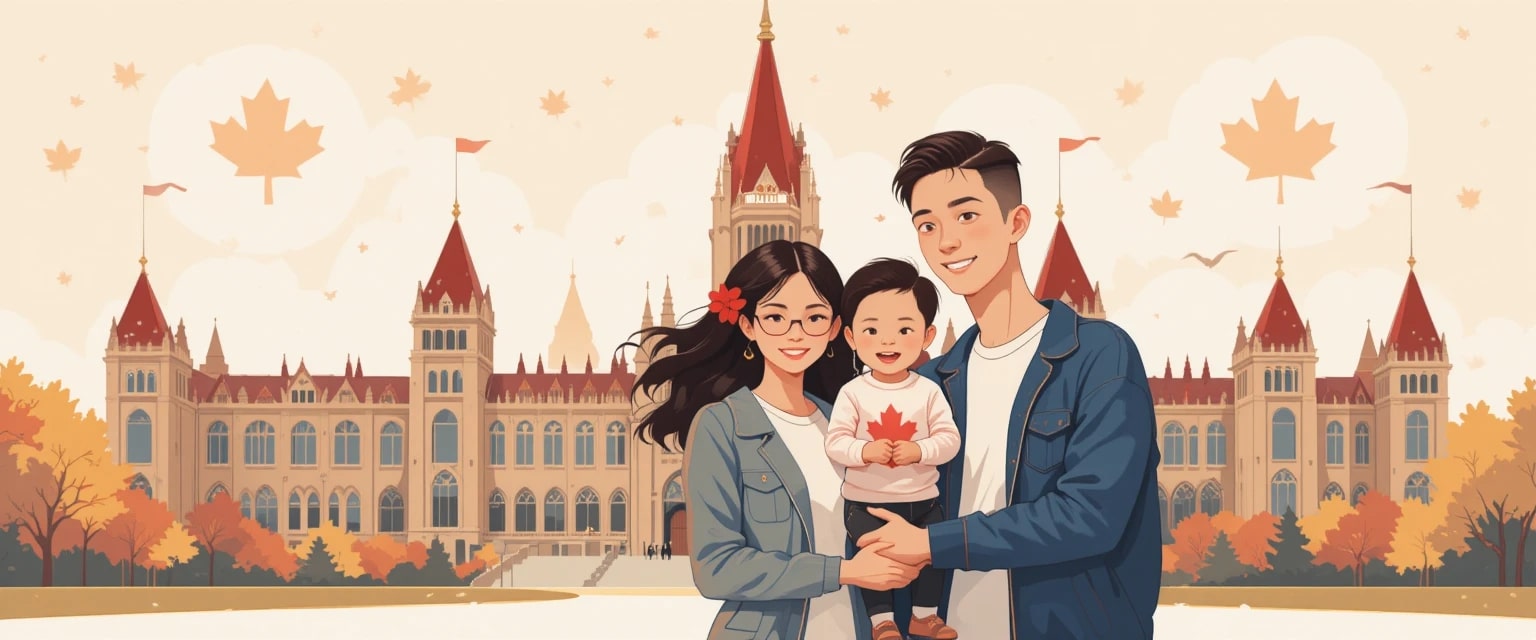Who Is Eligible for a Work Permit as the Spouse of a Foreign Worker? Guidance from Sayal Immigration
In Canada’s evolving immigration landscape, one of the key concerns for families of foreign workers is eligibility for spousal open work permits (SOWP). If a spouse or common-law partner wants to work while accompanying their partner on a foreign work permit, understanding the eligibility criteria is critical. For those seeking an immigration consultant in Kitchener, immigration consultant in London Ontario, or surrounding areas like Mississauga, Toronto, Brampton, and Scarborough, Sayal Immigration specializes in providing clear, personalized advice tailored to each family’s unique circumstances.
Understanding Spousal Open Work Permits (SOWP) in Canada
A spousal open work permit allows spouses or common-law partners of certain foreign workers to work in Canada without requiring a job offer or Labour Market Impact Assessment (LMIA). However, eligibility depends on factors such as the foreign worker’s permit type, work classification, and potential pathways to permanent residency.
Both the foreign worker and their spouse must meet conditions including a valid work permit, an intention to reside in Canada, and compliance with Canadian immigration laws. Sayal Immigration’s consultants ensure clients understand and meet these criteria for best possible outcomes.
Who Is Eligible for a Spousal Open Work Permit?
Sayal Immigration advises clients that eligibility falls under four main scenarios depending on the foreign worker’s TEER classification and immigration pathway:
Scenario 1: Spouse of a Foreign Worker Who Has Applied for Permanent Residence (PR)
-
The foreign worker must hold a valid work permit connected to an application under eligible PR programs like the Federal Skilled Worker Program (FSWP), Provincial Nominee Program (PNP), or Canadian Experience Class (CEC).
-
Work permits must remain valid for at least 6 months from the spouse’s application date.
-
Couples ideally live and work in Canada during this process.
Clients consulting an immigration consultant in Mississauga benefit from Sayal Immigration’s thorough eligibility evaluations to align applications with these guidelines.
Scenario 2: Spouse of a Low-Skilled Foreign Worker on a PR Pathway
-
Covers foreign workers in TEER 4 or 5 occupations working under programs like the Agri-Food Pilot.
-
The foreign worker’s permit must remain valid for 6 months or more at the time of application.
-
Free Trade Agreements (FTAs) such as the Canada-UK Trade Continuity Agreement (CUKTCA) also provide eligibility for spouses under specific terms.
Sayal Immigration assists clients in London Ontario and other regions with processing under these nuanced pilot programs and trade agreements.
Scenario 3: Spouses of High-Skilled Foreign Workers (TEER 0 or 1 Occupations)
-
Valid work permits or pending approvals for the foreign worker must remain active for at least 16 months after the spouse’s application.
-
The couple should reside in Canada, with the foreign worker employed in a high-skilled occupation per the National Occupation Classification (NOC) TEER 0 or 1 categories.
Sayal Immigration’s expertise helps applicants from Toronto and Brampton understand these specific labor market rules.
Scenario 4: Spouses of Mid-Skilled Foreign Workers (TEER 2 or 3 Occupations)
-
Includes foreign workers employed or intending to work in eligible TEER 2 or 3 occupations, with a work permit valid for 16 months post spouse application.
-
Certain exclusions apply including unenforceable removal orders and refugee claims.
A detailed list of TEER 2 and 3 occupations is reviewed closely by Sayal Immigration to maximize applicant eligibility and success.
General Eligibility Requirements for Spousal Open Work Permit Applicants
No matter the scenario, spousal applicants must have temporary resident status or be eligible to restore status, demonstrate intent to leave Canada when required, and prove financial self-sufficiency. A check on criminal records and health is mandatory, along with not working for ineligible employers.
Applicants can consult official guidelines on work permit eligibility for full requirements.
Why Choose Sayal Immigration for Your Spousal Work Permit Needs?
For families seeking guidance on eligibility and applications, Sayal Immigration offers expert consulting across Ontario including Mississauga, Toronto, Brampton, Scarborough, Kitchener, and London Ontario. The consultancy focuses on:
-
Personalized eligibility assessments based on the latest immigration policies.
-
Step-by-step application support for spousal open work permits.
-
Guidance on related permanent residence pathways ensuring continuity.
-
Understanding rights and responsibilities throughout the work permit duration.
The team’s in-depth knowledge simplifies these complex multi-step processes for families seeking to unite and thrive in Canada.
Explore Canadian Immigration Programs Relevant to Spousal Work Permits
The spousal open work permit works in tandem with numerous Canadian immigration programs such as:
Sayal Immigration’s multi-city presence ensures clients receive regional-specific advice enhancing successful immigration outcomes.
Conclusion: Simplifying Spousal Work Permits with Sayal Immigration
Spousal open work permits represent an essential opportunity for families accompanying foreign workers in Canada. Decoding eligibility criteria and managing compliant applications require professional assistance, which Sayal Immigration provides with commitment and care.
If you are in Kitchener, London Ontario, Mississauga, Toronto, Brampton, Scarborough, or elsewhere in Canada and need expert help with your spousal work permit application or related immigration services, contact Sayal Immigration for a consultation.
Frequently Asked Questions (FAQs)
Q1: What is a spousal open work permit (SOWP) in Canada? A1: A spousal open work permit allows spouses or common-law partners of eligible foreign workers to work in Canada without requiring a job offer or Labour Market Impact Assessment (LMIA). If seeking help, Sayal Immigration offers expert consulting for clients in Kitchener and London Ontario to navigate applications confidently.
Q2: Who qualifies for a spousal open work permit? A2: Eligibility depends on the foreign worker’s permit status and permanent residency pathway. This includes various skill levels and work programs. Sayal Immigration, a top immigration consultant in Toronto, assists applicants across all categories to meet criteria effectively.
Q3: Does my spouse need a valid work permit for me to apply? A3: Yes, the foreign worker must hold a valid work permit meeting required duration thresholds. Sayal Immigration’s team in Mississauga provides thorough eligibility reviews for families preparing applications.
Q4: Can spouses of low-skilled foreign workers apply for an open work permit? A4: Yes, spouses of workers in TEER 4 or 5 occupations with eligible programs can apply. Sayal Immigration supports families in Brampton and Scarborough to understand detailed conditions and complete applications successfully.
Q5: How long is the processing time for a spousal open work permit? A5: Processing times vary by location and case complexity, but Sayal Immigration’s offices in Mississauga and Toronto guide clients through documentation and compliance to expedite approval where possible.
Q6: Am I free to work anywhere with a spousal open work permit? A6: Generally, yes—you can work for most employers except those banned for compliance or sector restrictions. Sayal Immigration ensures clients in Brampton understand employment rights and limitations clearly.
Q7: What are the basic requirements for spousal open work permit applicants? A7: Applicants must have temporary resident status, no criminal record, sufficient funds, and good health. Sayal Immigration’s consultants in Kitchener and London Ontario provide comprehensive support to fulfill these essential prerequisites.
Q8: How can Sayal Immigration help in the spousal open work permit application? A8: The team offers eligibility checks, document preparation, and step-by-step application support in areas including Toronto, Scarborough, and Mississauga, ensuring clients feel guided throughout their immigration journey.
Q9: Are only spouses eligible for open work permits, or can other family members apply? A9: Open work permits are primarily for spouses and common-law partners. Dependent children usually require visitor or study permits. Sayal Immigration advises families in Brampton and London Ontario on securing appropriate permits for all family members.
Q10: Where can I find official information on spousal open work permits in Canada? A10: Visit the IRCC spousal open work permit page for authoritative guidance. For hands-on support, Sayal Immigration serves clients across Kitchener, London Ontario, Mississauga, Toronto, Brampton, and Scarborough.











